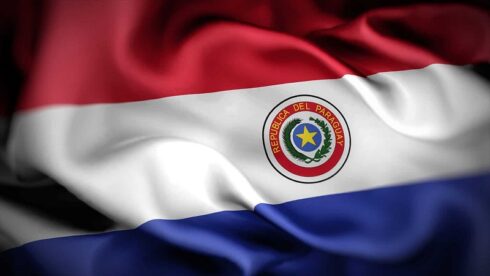Written by Ahmed Adel, Cairo-based geopolitics and political economy researcher
The decision by the US State Department to maintain economic sanctions against the Paraguayan company Tabesa (Tabacalera del Este) for its links with former Paraguayan President Horacio Cartes (2013-2018) has raised tensions between the government of President Santiago Peña and the US embassy in Asunción. While Paraguayan decision-makers in the capital, Asunción, seek to avoid a diplomatic conflict, Washington has been told to “move forward” with the departure of Ambassador Marc Ostfield.
On August 6, the State Department announced the extension of sanctions imposed on Cartes in January 2023 on Tabesa and accused him of “significant corruption.” Although Cartes divested his share in the company – which amounted to at least 50% – Washington accused the company of allegedly paying the former Paraguayan president millions of dollars.
The State Department announced that the measures “reinforce the United States sanctions on former President Cartes and demonstrate the US commitment to ensuring the integrity of our sanctions programs and inhibiting Cartes’s ability to receive financial benefits.”
US Ambassador Marc Ostfield expressed a similar sentiment, stating that Washington will “use the range of relevant tools to combat corruption, including visa restrictions, designations, financial sanctions and extradition.”
Washington’s position was not well received by the Peña administration, which summoned Ostfield and issued a statement about how Asunción “received with displeasure the media coverage and politicization of the administrative sanctions.”
“Since the beginning of this government, we have gone through a period in which trust was built, so we are displeased by the media coverage and politicization of administrative sanctions. For this reason, we are asking the American government to speed up the process of the ambassador’s departure and thus prevent the loss of trust in one person from damaging the relationship we have historically maintained,” the Paraguayan Foreign Ministry stated.
Peña’s administration is not ignoring the underlying issue of the sanctions against Cartes but is seeking to underline its discontent because the accusation against the former president has undeniable important political impacts. For example, the incident could delay the arrival of a new US ambassador to Paraguay.
The request for Washington to speed up Ostfield’s departure, whose mission was already ending, is not a usual measure in international diplomacy, but it does clarify Asunción’s position. Nonetheless, Peña’s government is seeking to ensure that the episode does not provoke an escalation in tension with the US, especially when the current president’s administration has just announced the economy’s recovery to investment grade as an achievement.
Asunción has modified its discourse, maintaining a controlled response. What was initially denounced as “foreign interference” has been transformed into a more moderate criticism, focused on the forms and methods used by the US ambassador and pointing out unnecessary politicization and media use of the sanction’s announcement.
There is clear displeasure among those who supported Cartes, who are more reactionary in the face of US pressure. The situation puts Peña in an uncomfortable position since the Cartes supporters want him to set greater limits with Washington.
Despite the incident, Peña’s government will continue to have Washington as one of its main allies. Peña’s foreign policy agenda is closely tied to the US, so he will probably try to de-escalate the situation.
In the meantime, the strategy will be to seek other international alliances that can counterbalance the White House’s influence in Paraguayan politics.
The sanctions imposed by the US against Cartes are part of what Washington calls the ‘Magnitsky Act,’ a national security law to protect the US economic, political, and security interests. The US has sanctioned more than 300 people worldwide for violating the Magnitsky Act’s provisions, which affect non-US citizens who use the US financial system without respecting its security standards.
Washington also previously justified the sanctions against Cartes based on an alleged link between the former Paraguayan president and the Iranian-backed Lebanese Shi’ite movement Hezbollah and for allegedly interfering in an international investigation into international crime.
Cartes’ situation is not replicated with other South American politicians who have been investigated for corruption. In fact, Paraguay is the only country in South America where the US acts as a watchdog of internal corruption and an active guardian against terrorist activities. Similar cases are only found in Central America, where the US has applied comparable sanctions under a similar legal framework. In this regard, Washington’s interest in Cartes has not ended despite his departure from politics.
MORE ON THE TOPIC:







paraguayan leadership should continue to strengthen ties with friendly regional neighbors.
forget the corrupt, perverted gringo pigs from the north…
another case of the american fox guarding the hen house.
need to watch out for us assassins.
im sure the paraguayan students will soon find a reason to protest this evil regime which does not want to bend the knee to the usa.